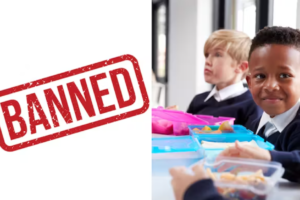Last week,the Akashic Times revealed that both New South Wales and Queensland had proposed legislation to force individuals to register their tattoos with the state government.
We were inundated with angry emails from nameless individuals claiming that the story was nonsense.
In an ironic way they are right. The law is not as bad as we stated – it’s actually even worse. If anything, we are guilty of not highlighting the issue prominently enough.
For recently, while reviewing the law to make sure that we hadn’t indeed made a very unfortunate mistake, we discovered sinister plans by the Australian government to force all tattooists onto a government database.
In this story, we have included direct links to the piece of legislation that we are making reference to. The legislation and the exact section in question is also referenced at the bottom of this page.
For so important is this fundamental issue of human rights, that it is incredibly important to raise awareness.
And nor are we referencing some outdating law that was enacted years ago. On the legislation itself, it claims that is correct as of January 6th. The legislation we are referring to is the Tattoo Parlours Act 2013.
Essentially, what it requires is that owners of tattoo businesses should agree to be fingerprinted, palm printed, and photographed. They must also agree that those details, along with their full name and contact details must be published on a government database.
This is the first step towards criminalising and victimisation those with tattoos. The next step – as we highlighted in the first story – is to criminalise those with tattoos.
Now let us be clear. It is not yet against the law in Australia to have a tattoo. However, proposals have been made for those with tattoos to register them with the state government.
At the moment, it is not enshrined in law – yet. The proposals were first made a year ago. But earlier this year, the same proposals were made again.
Why? Enter the Tattoo Parlours Act 2013. Often government ministers will make a really outrageous proposal designed to provoke a hysterical reaction among the public.
Then that proposal is withdrawn and a new similar piece of legislation is introduced which also takes many civil liberties away – but is not as bad as the original proposal.
It is then more likely to be accepted simply on the basis that it is a better compromise, than what was originally on the table.
Once that happens, it paves the way for the original proposal to be reintroduced under another name. A recent example of this was the Shares for Rights law in England. Under the Shares for Rights employment legislation, the government proposed that employees should be forced to give up every single one of their employment rights in exchange for ‘shares’ in their company.
That law was scrapped, and instead the government simply made it harder for people to sue for unfair dismissal.
Once that slightly watered down proposal was brought in and accepted as a compromise, the Shares for Rights law was quickly reintroduced.
A similar pattern has occurred here with the Tattoo Parlours law 2013. Last year, the government proposed that all individuals with tattoos should require permission before getting them done.
As many critics of our original story pointed out – that was scrapped. However, here is what they failed to note.
The Tattoo Parlours Law 2013 requires all tattooists to be fingerprinted and tracked.
And now the debate over whether individuals also need to register their tattoos has reared its ugly head again.
And after reading through every single point of law in the Tattoos Parlours Act 2013, we discovered that there is plenty of scope within the law to target individuals with tattoos as well.
This marks one of the first time that the government has asked private business owners to agree to be entered onto a database.
So why are we talking about it now? Well, we were recently made aware of one tattooist in Queensland who was on the receiving end of this Orwellian law.
Sunshine Coast based Caloundra Tattoo Studio owner Angelo Garozzo was recently sent a request by the Queensland government asking him to renew his license – and agree to be fingerprinted, and photographed.
To add insult to the injury, the government also requested $1900 for the licence.
Admittedly he is a member of the Rebels Motorcycle Gang, but is not involved in – or suspected of – any criminal activity.
He declined. He told Real News Australia: “I will not be attending this gross violation of privacy that this ridiculous act forces on people. I will not be paying for any licence until it is amended. It’s about the government saying you’re guilty until proven innocent not innocent until proven guilty. That’s what these laws really mean. Just like the VLAD law (Vicious Lawless Association Disestablishment Bill 2013). It’s about taking more and more of our rights away.”
According to Mr Garozzo only 0.4 per cent of all crimes in Queensland are perpetrated by bikie gangs or gang members.
In the same interview with Real News Australia he added: “We’re not all bad guys. Back in the day we used to let people think that we were the meanest, toughest, baddest blokes around. We liked that image. Now, we’re all Grandfathers”.
But here it is important to flag up another important clarification. There may be many who believe that these laws are just targeting bikers, or criminals with “something to hide”.
Actually, this is not the case.
In the VLAD law mentioned above, it does not specifically mention bikers. The point about all of these laws which many – including some of the naysayers to our previous story – failed to note is the scope that these laws have.
They set a dangerous precedent as it’s left wide open as to who the government may deem to be a “criminal organisation”.
And there is yet another point which we are keen to emphasise. Within the Tattoo Parlours Act 2013, some parts were italicised, to indicate that they were no longer being brought into effect.
However, the parts that were not italicised still present a very worrying dilemma, not only for tattooists but all of those who are concerned about their civil liberties in Australia.
Below we have highlighted just one of the sections of this law which appeared on page 15. However, after reading through the entire piece of legislation, we have concluded that the only way to safeguard the civil liberties of all of those tattooists and individuals with tattoos in Australia is effectively to oppose this law.
The Tattoo Parlours Law 2013. Section 13, page 15:
Fingerprinting and palm printing of applicants
(1) An applicant for a licence must consent to having his or her fingerprints and palm prints taken by the commissioner to confirm the applicant’s identity.
(2) The chief executive must refuse to decide an application for a licence if the applicant refuses to be fingerprinted and palm printed.
(3) If the applicant consents to having his or her fingerprints and palm prints taken by the commissioner, the chief executive must ask the commissioner to take the applicant’s fingerprints and palm prints—
(a) to assist the chief executive in deciding whether the applicant is an appropriate person to hold a licence; and
(b) to assist the chief executive in identifying the applicant for the purpose mentioned in paragraph (a).
(4) The commissioner must comply with a request made under subsection (3).
(5) The commissioner must give the chief executive information about an applicant’s identity derived from fingerprints and palm prints of the person taken under subsection (4).
Akashic Times is the UK’s only online, fully independent not-for-profit weekly newspaper that brings you real news from across the globe.
If you want to keep ahead of what is really going on in the world, subscribe to our newspaper via the subscribe button and join our Facebook & Twitter pages. Subscription is completely free ofcourse
















Follow Us!